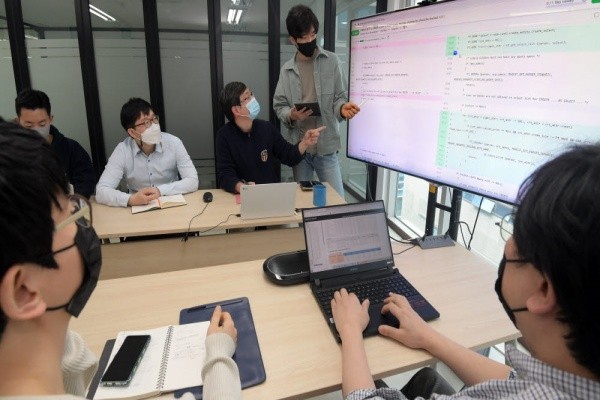The South Korean government has proposed that the DBMS (database management system) for public institutions that will enter the National Information Resources Service’s Daegu Center to be based on open source in order to reduce national budget and secure flexibility in IT infrastructure. With this decision, there is expected to be restructuring within the public market that is centered around commercial DBMS such as Oracle and Tibero.
According to the National Information Resources Service (NIRS) and the industry on Tuesday, the NIRS has proposed five open-source products that include three domestic solutions (Cubrid, Altibase, and Goldilocks) and two foreign solutions (MariaDB and PostgreSQL) for public institutions that will enter the Daegu Center next year. Commercial systems such as Oracle and Tibero have been excluded. Although open-source DBMS is not a mandate, it is seen as a basic guideline for public institutions.
The Daegu Center is the country’s third government integrated data center that seeks to be a SDDC (software defined data center) and is part of a national project on transition to cloud computing data center. It is a core infrastructure of implementation of high-tech administration through intelligent information technology which is a basic plan of electronic government. It is currently being built as a national cloud data center and it is expected to be completed by the end of this year, have basic data processing infrastructure built in the first half next year, and start bringing in public institutions.
The NIRS saw that open-source DBMS would be appropriate for realization of SDC and transition to cloud computing data center. About 50 public institutions are currently scheduled to enter the Daegu Center in the first half next year.
“According to the standard on how intelligent cloud infrastructure is designed, the South Korean government plans to transition to open-source software as soon as possible.” said one official from the NIRS. “We have proposed open-source DBMS to public institutions that are scheduled to enter the Daegu Center next year.”

This official also said that although the government cannot force them to select a particular open-source DBMS as they have to individually change their current systems, the government is encouraging them to select open-source DBMS for vitalization of small and medium-sized enterprises and open-source software regulated by the Software Industry Promotion Act. The act includes regulations related to support for small and medium-sized enterprises and open-source software.
The NIRS has designed open-source DBMS appropriate for each public institution that will enter the Daegu Center and is recommending different systems to public institutions. Regarding an opposition from companies that currently provide commercial DBMS, the NIRS explained that it is just following the direction of the government’s policy.
With this policy in place, open-source DBMS providers have been very busy. Jung Byeong-ju, who is the CEO of Cubrid, said that competition between open-source DBMS providers has been getting very intense as the public cloud market continues to expand and that DBMS providers have been very active in carrying out their businesses and marketing towards public institutions that are scheduled to enter the Daegu Center.
As the transition to cloud computing becomes much faster, Oracle that is overwhelmingly the top company in the DBMS market is expected to slowly lose its ground in the market. As the South Korean government has declared transition to cloud computing and adoption of open-source DBMS, open-source DBMS is expected to be adopted by more companies and public institutions.
A representative from the open-source software industry said that there have been more opportunities for open-source DBMS providers due to the market’s growth and that commercial DBMS providers will also eventually provide their products as open-source software due to a global trend of cloud computing.
Staff Reporter Oh, Dain | ohdain@etnews.com